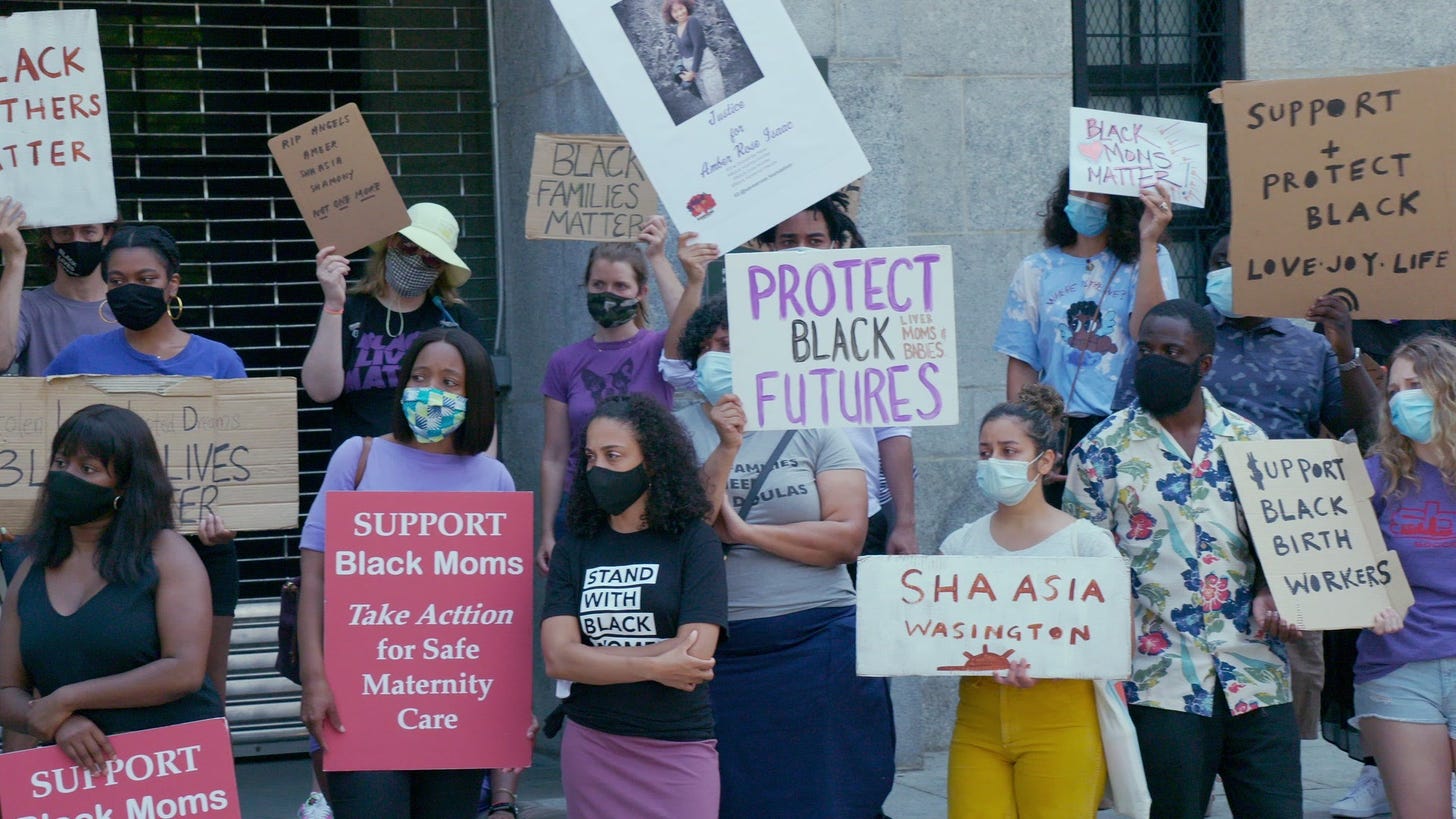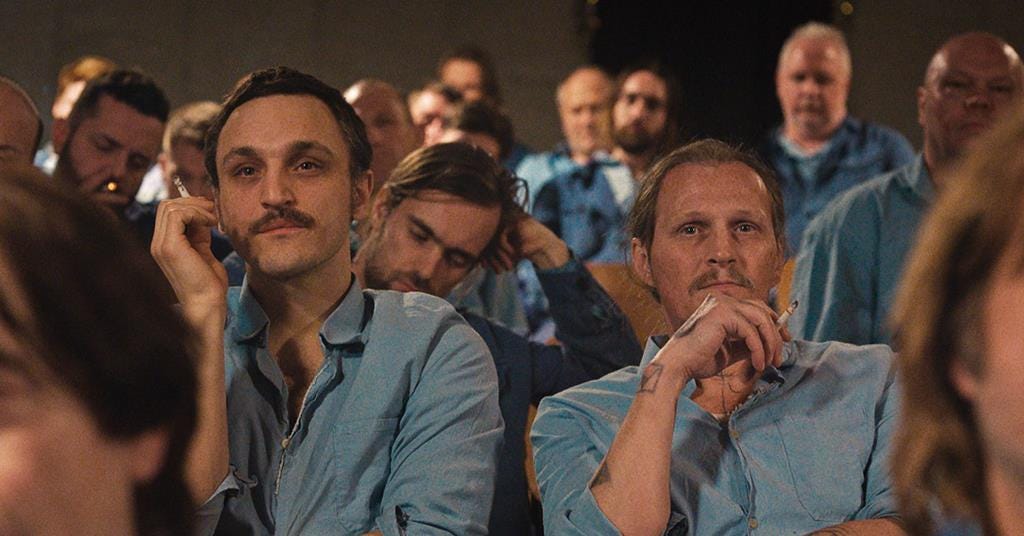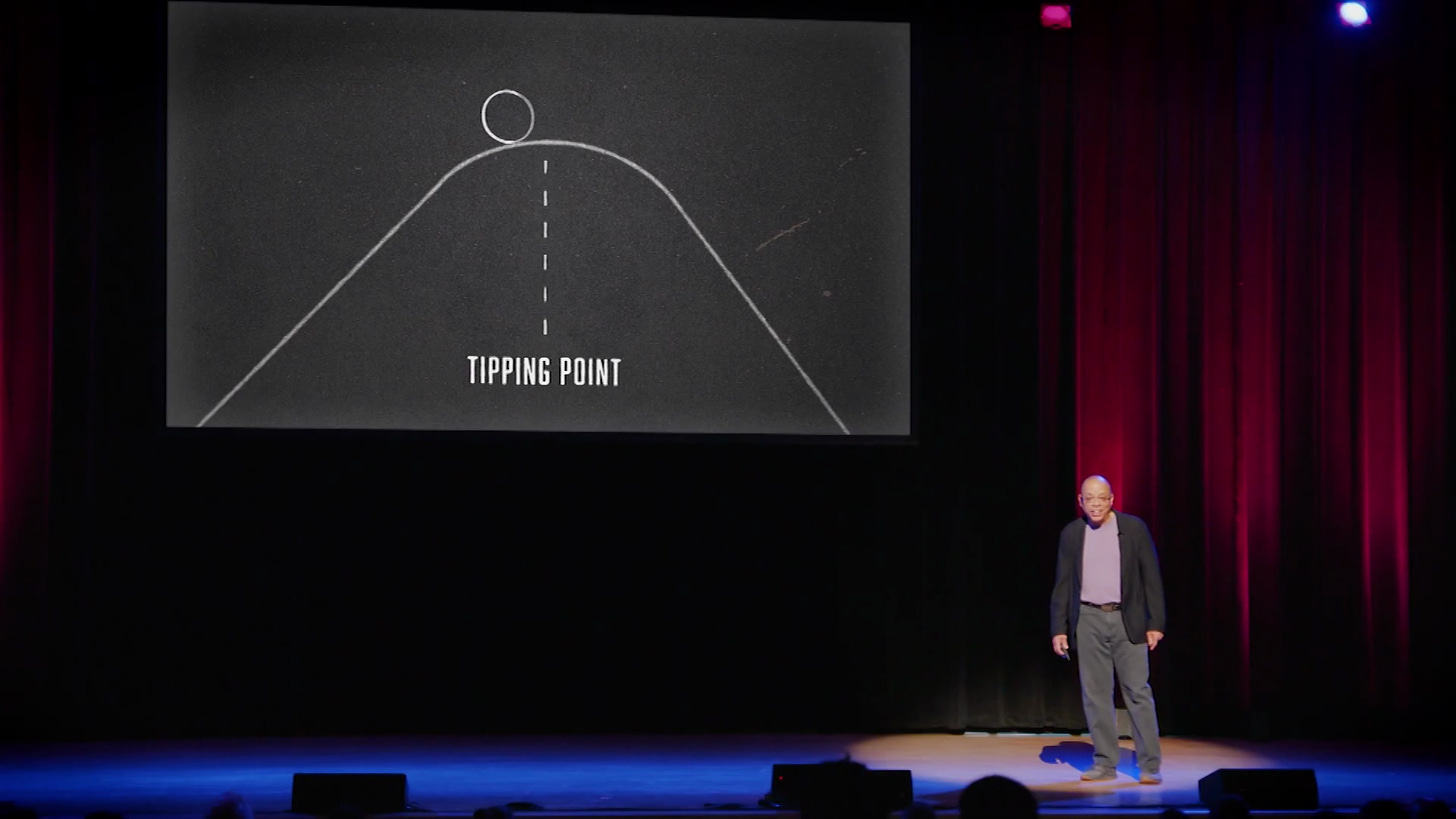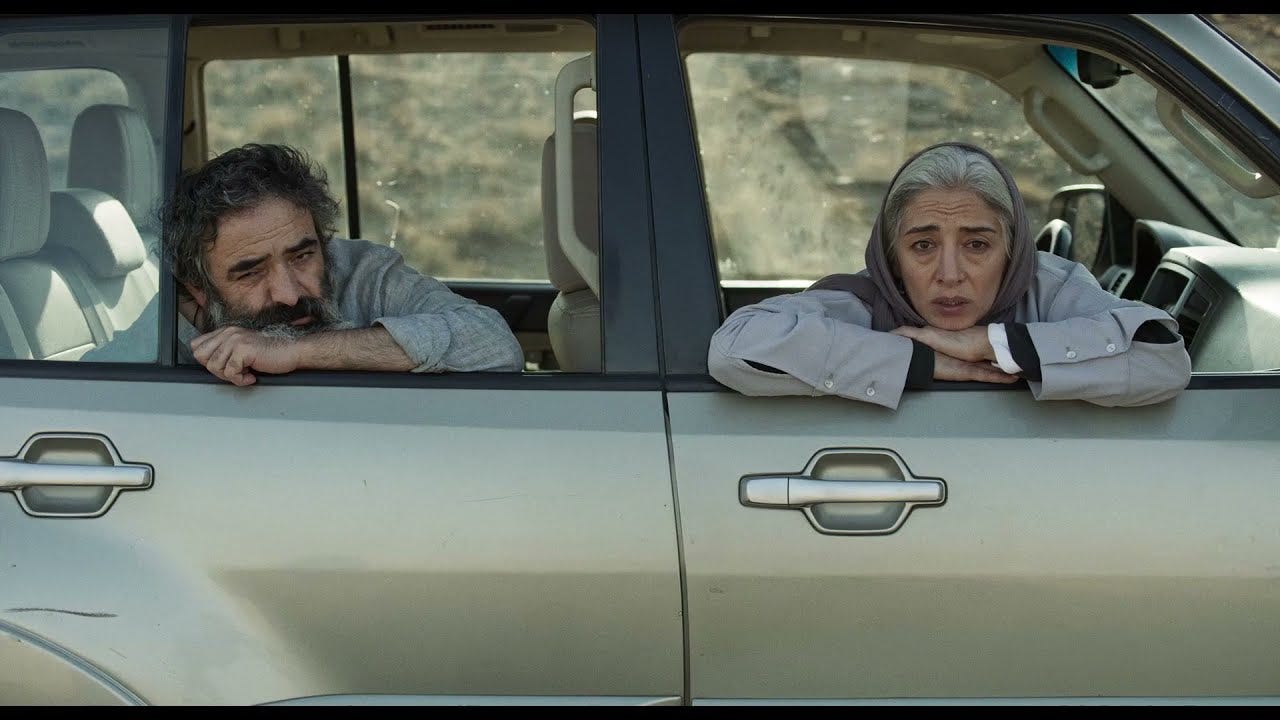The Best Films of the Year So Far (* According to Metacritic, According to Me): Part II
A plea for critics to stop overpraising issue docs, plus two excellent films from Germany and a stellar debut feature from Jafar Panahi's son.
Last week, I started playing catch-up on the year’s best movies so far—at least according to the collective wisdom of critics sampled on the review aggregation site Metacritic. As I’ve written before, the reason I chose Metacritic over Rotten Tomatoes for this project is that Metacritic better reflects the level of passion critics have for a given film, while Rotten Tomatoes offers a thumbs-up/thumbs-down metric. The hope is to weed out mediocrities. If everyone thinks a movie is pretty good, that’s worth a perfect 100 on Rotten Tomatoes. The perfectly fine Sundance doc Fire of Love currently enjoys an RT score of a 99, for example. Great movies have a tendency to be more polarizing, because they often present a challenge that not all are going to accept.
The Reveal is a reader-supported newsletter dedicated to bringing you great essays, reviews and conversation about movies (and a little TV). While both free and paid subscriptions are available, please consider a paid subscription to support our long-term sustainability.
As always, I’m considering them in the order they’re ranked on Metacritic and whether they’re likely to be worth listing on a best films of 2022 list when this year’s in the books. But as I finish up this list, I’m realizing that good-not-great is an issue on Metacritic, too. Scrolling further down its Best Movies of 2022 round-up, I find myself much more excited by films like A Hero (#27), Benediction (#34), and After Yang (#50) than anything in the Top 10 here.
The documentaries, save for the one at the very top, are especially disappointing, the beneficiaries of critics who are so locked into the films’ messaging that they ignore their aesthetic shortcomings. I wrote about that phenomenon about a decade ago in a True/False-inspired jeremiad titled “If documentaries want to be treated like movies, they need to behave like them,” and nothing has changed. Critics hold documentaries to a lower standard than features, which only encourages the proliferation of well-intentioned but not especially cinematic work that could function just as effectively as an op-ed or a magazine profile.
That said, there’s a lot to admire about the Top Five, a few of which have the audacity to belong among the best. Here we go:
5. Aftershock (dir. Paula Eiselt and Tonya Lewis Lee)
Current ranking/score: #8, 87
How to watch: Hulu.
List-worthy?: No.
Premise: Through the stories of two fathers who lost their wives to childbirth complications, this documentary explores the high maternal mortality rate in the United States, especially among Black women, and the difficult fight to change the system.
Sample praise: “Eiselt and Lee successfully put a human face on the now widely reported crisis of Black maternal deaths, which allows them to unpack the underlying factors that have led to the crisis without bogging down the narrative in a deluge of statistics.” — Beandrea July, The New York Times
Thoughts: The line after the one I quoted from the New York Times review above tells the story: “Yet scenes with the main subjects sometimes feel more staged than vérité, and the audience walks away wishing we knew them better as people.” In trying to tell personal stories of loss and protest around the issue of maternal mortality, Aftershock focuses on two New Yorkers, Omari Maynard and Bruce McIntyre, who are determined to organize a movement around what they feel were the preventable deaths of their wives during childbirth. But their scenes together do feel conspicuously arranged, as if the filmmakers scheduled a meeting (which is fine) that they then tried to make look organic (which it does not). The facts surrounding the disturbing spike in maternal mortality rates are worth knowing—the main takeaway is an increase in C-sections over natural births, due to poor incentives in hospital and insurance fees—but as a movie, Aftershock has too propagandistic a bent, including an entire sequence at a birth center that might as well be a pamphlet distributed in the lobby. Yes, this story is important, but raising awareness is too modest a goal for a documentary.
4. Great Freedom (dir. Sebastian Meise)
Current ranking/score: #5, 89.
How to watch: Mubi, Apple TV, Amazon
List-worthy?: No.
Premise: Long after the Nazis brutally enforced Paragraph 175, a German criminal code prohibiting sex between men, the law continued to stay on the books in post-war West Germany. Opening in 1968, Great Freedom is about Hans (Franz Rogowski), a gay man who stubbornly refuses to abide by the law, no matter how much time it lands him in prison—and, once there, in solitary confinement.
Sample praise: “Low key, affecting and insistently unsentimental, Great Freedom is a fictional story of resistance against this inhumane law, a story of salvation told one caress and sexual encounter at a time.” — Manohla Dargis, The New York Times
Thoughts: I first encountered Franz Rogowski in 2017’s Happy End, maybe the only forgettable film that Michael Haneke has directed. But Rogowski always leaves an impression: His unusual features give him a dark, charismatic scuzziness, like a cross between Peter Lorre and Vincent Gallo, and he’s extremely well-suited to playing troubled romantic heroes, as he did in two straight Christian Petzold films, 2018’s Transit and 2020’s Undine. The cult of Rogowski will surely grow—he’s due to star in new films by Terrence Malick and Ira Sachs—and he gives perhaps his richest performance to date as Hans in Great Freedom, a gritty (if somewhat conventional) drama about a gay man who simply refuses to put the law ahead of his desire to live as he pleases. He pays dearly for his brazenness, as do a few of the men he pursues, whether for bathroom quickies or more sustained relationships. You might expect Hans’ willingness to suffer for his trysts to arise out of self-loathing or madness, but Rogowski turns him into a noble warrior who believes not only in his freedom, but in the rational thought that the pleasures he chases are worth it.
3. Who We Are: A Chronicle of Racism in America (dir. Emily and Sarah Kunstler)
Current ranking/score: #4, 89.
How to watch: Netflix.
List-worthy?: No.
Premise: Pegged to a live lecture performance, this documentary follows civil rights lawyer Jeffrey Robinson through an expansive chronicle of American racism past and present, and suggests how good citizens might best come to terms with it.
Sample praise: “Robinson is matter-of-fact, thoughtful and enormously compelling in illustrating hidden chapters of our shared history.” — Matt Fagerholm, RogerEbert.com
Thoughts: This is An Inconvenient Truth for racism. That’s the model, and there’s a limit on how good a movie built around a PowerPoint presentation broken up by illustrative segments in the field can be. Who We Are reaches the top of that limit thanks largely to Robinson’s clarity, historical insight, and willingness to engage in conversation, even when actually breaking through is a distant likelihood. It takes courage for a Black man to stand a couple feet away from the glowering neo-Confederate and debate the true cause of the Civil War, but Robinson is ready to expose the racial undergirding of his adversary’s “high taxes” argument, even if that adversary is not willing to listen. Robinson is particularly effective in exposing the continued prejudices of “post-racial” America, which were not magically resolved by a Black man getting elected President. It’s easy to imagine a future where Who We Are is a staple for American classrooms—as a parent, too, I think it’s an excellent tool for educating children to histories and social cues they may not know—but again, that’s a low standard for a documentary. (If you’re looking for a doc on American racism that serves its compelling central figure more artfully, see I Am Not Your Negro instead.)
2. Hit the Road (dir. Panah Panahi)
Current ranking/score: #3, 90.
How to watch: Digital rental.
List-worthy?: Somewhere in the 11-20 range seems likely.
Premise: Packed into a station wagon, two middle-aged parents and their sons—one a troubled young adult, the other a delightful six-year-old scamp—drive across the Iranian countryside, toward a unknown destination that slowly amplifies the tension within the car as they go along.
Sample praise: “What makes Hit the Road so memorable and devastating is the way it explores normal life under duress.” — A.O. Scott, The New York Times
Thoughts: Earlier this year, I had the pleasure of serving on the jury for New Director at the San Francisco International Film Festival. There were five of us on the jury, and like all the juries I’ve been on in the past, we were diligent about giving each film an airing and sorting through different ways to honor the work we liked best. It was a quality slate—on balance we liked all the films—but it was clear from the very beginning of our discussion that Hit the Road would take the top prize. Panah Panahi is the son of Jafar Panahi (The Circle, Crimson Gold, This is Not a Film), the brilliant Iranian director whose political courage has led to multiple arrests, including a recent six-year prison sentence for simply inquiring about the arrest of fellow filmmaker Mohammad Rasoulof. With Hit the Road, the younger Panahi has a made a political film around the edges: This family is on the run from a sinister cultural force that’s vaguely defined but acutely felt. But much of the film is given over to a frisky, hilarious, and at times moving dynamic between the four of them, and the road movie premise allows for welcome spontaneity. Think Little Miss Sunshine, but great.
1. Mr. Bachmann and His Class (dir. Maria Speth)
Current ranking/score: #1, 92.
How to watch: Mubi.
List-worthy?: Honorable mention.
Premise: Mr. Bachmann is a sixth-grade school teacher in Stadtallendorf, Germany, a German industrial town that once made munitions for the Nazis, but has since become home to a diverse immigrant population. In this 217-minute documentary, Bachmann works with children from a range of ethnic backgrounds and capabilities, in the hope of advancing them to secondary school.
Sample praise: “Gradually, a group portrait emerges that is also a remarkably detailed and complex picture of a town and a nation. And more than that: an intimate, humanist epic.” — A.O. Scott, The New York Times
Thoughts: With its patient, observational style and consequently generous running time, the obvious point of comparison for Speth’s documentary is Frederick Wiseman, and the diversity angle alone might make Mr. Bachmann a nice companion to Wiseman’s 2015 doc In Jackson Heights. But Speth doesn’t have much interest in the institutional aspects of this school so much as the way a good, compassionate, unconventional teacher sets about reaching kids in a classroom where one size does not fit all. That teacher’s the right person at the right place at the right time: Between Bachmann’s eccentric yet compassionate personality, the town’s fascinating history and demographics, and a pivotal moment in these schoolkids’ lives, the stakes are high enough to sustain all the attention Speth demands of us. The reward is a long view of how healthy student-teacher relationships are developed—one lesson, one discussion, and one individual moment at a time.
Post-script: Scrolling down the Metacritic list, there are a number of movies that trusted critics have loved that I plan to see out before the end of the year: Lingui, The Sacred Bonds (#17), The Girl and the Spider (#18), Neptune Frost (#21), and Mad God (#41) among them. If you’re a subscriber and can recommend other hidden gems for us, sound off in the comments.










I need to catch up on a lot of this year's films but i will say the big problem with Metacritic's rankings (and why i miss their in-depth round-ups) is that a lot of the high ranked ones tend to have lower review counts, which of course will push it up. Sometimes there's genuinely great ones but for a lot of docs and the like, they tend to benefit from not many people seeing them overall.
Though basically no one saw Benediction, I did, and it's still my favorite of the year so far.